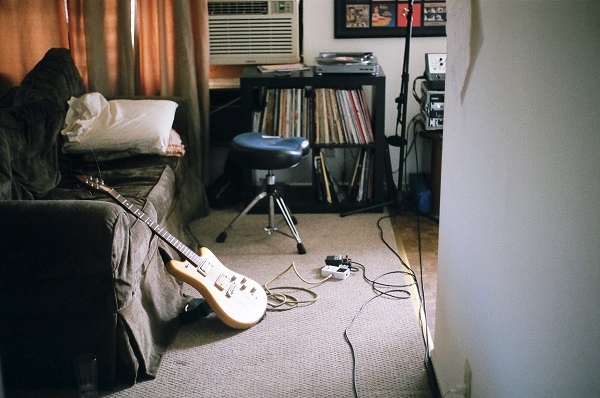Electricity is what keeps human civilisation going. Most of us are pretty attached to our multiple devices. Our professional organisers often deal with the category of electrical items, be this leads, cables, devices, boxes or equipment. So naturally, we place importance on electrical safety.
However, to put a dramatic slant on it, electricity also kills and injures hundreds of people per year, around the globe. We are counting in household accidents only, as the industrial stats would take it into the thousands. This is happening even when advanced technology is present to safeguard us from shocks in every scenario.
Go through the small list of tips we have for our readers here and see if there is anything else that you can do to further reduce any chances of electrical hazards, trips, electrocution, and fire in your own home. You never know, this could be the most useful blog post you read all year!
Modern Bathrooms Can Become Death Traps Without the Due Precautions
Electrical plugs, hairdryers, water heaters, curling irons, hair straighteners, electric razors. The list of potentially deadly/shocking (literally!) electrical items that we either have installed in our washrooms or bring inside it with us on a daily basis, simply goes on indefinitely. Although a well-insulated bathroom can provide advanced protection, making basic mistakes can lead to inescapable tragedies.
The issue with bathrooms and electricals is that tap water is an excellent conductor of electricity, which naturally makes usage of any electrical device in a bathroom a bad idea.
Do not bring in any additional electrical/electronic devices into the bathroom to reduce any chances of accidental electrocution. Also, there should not be any sockets near the shower/bathtub, unless it is at a distance of 10-feet or more. And avoid leads which trail around near the bath or shower.
Trip Hazards Are Real Hazards
You may not associate this with electricity safety. But trailing cables are a common trip hazard within homes, especially now that people are more likely to work from home. Plan the layout of your home-work space to avoid trailing cables. If you can, place your desk close to a power supply. But if not, then route cables and extension leads along walls to prevent trip hazards.
Sometimes, it’s impossible to avoid some stray cables, but ensure you wear appropriate footwear at home, keep the area well lit and lay non-slip material under rugs or on hard floors.
Ensure Circuit Protection with Circuit Breakers and RCDs
An RCD or a residual current device is a lifesaver in any facility that has electrical power. What it does is shut down the electrical power if someone ends up touching a live wire. They may still get a mild to moderate shock, but in most cases, it won’t be lethal or heavily damaging to the nerves.
These break the flow of current to the redirected circuit (which would be the person getting shocked in this example) immediately. You want a Fixed RCD inside the consumer unit, aka the fuse box, to keep everyone in the house safe.
You can find a fixed RCD you need for your home’s particular consumer unit, along with other types of circuit protection devices such as circuit breakers (MCBs) on expertelectrical.co.uk. They are one of the rare online wholesale electrical parts sellers that even end-consumers can buy from at a lower than retail price.
Get to Know How to Not Cause a Short Circuit
In British homes, short-circuits are the most common cause of fires. These can be prevented by ensuring that every plug meets British Standard BS 1363, while every one of the fuses meets British Standard BS 1362. If they meet those standards, it should be clearly marked as such. Also, check the following chart for a better understanding of how to avoid overloading.
- A 13A fuse is used for washing machines, dishwashers, irons, electric kettles, microwave ovens, electric ovens, toasters, instant water heaters, etc.
- A 3A Fuse is for everything else from the likes of phone chargers, laptop chargers, lamps, and TVs, to even desktop PCs and power drills
Electrical contractors should also keep these pointers in mind, although they are likely to be more aware of them already than the average homeowner. If a house is wired with electrical safety and circuit protection in mind from the planning stage, the chances of any tragedies happening there in the future are reduced drastically.
Avoid Overusing Extension Cords
Following on from the above – just because your extension lead can accommodate 4 plugs, doesn’t mean you should fill it up! And, often, when we work in clients’ homes, we see extension leads plugged into second extension leads too. If these leads are overloaded, together the appliances can easily exceed the safe maximum, leading to overheating and a fire risk.
Use one extension lead per socket. And an electrician can install more sockets if needed. Danger signs are melting, sparks or scorching around an extension lead. If the power keeps cutting out, this is a warning sign too.
Your home should be your sanctuary and the safest place there is for you. We hope you’ve found these tips useful and that they help ensure you stay absolutely safe in your home.


